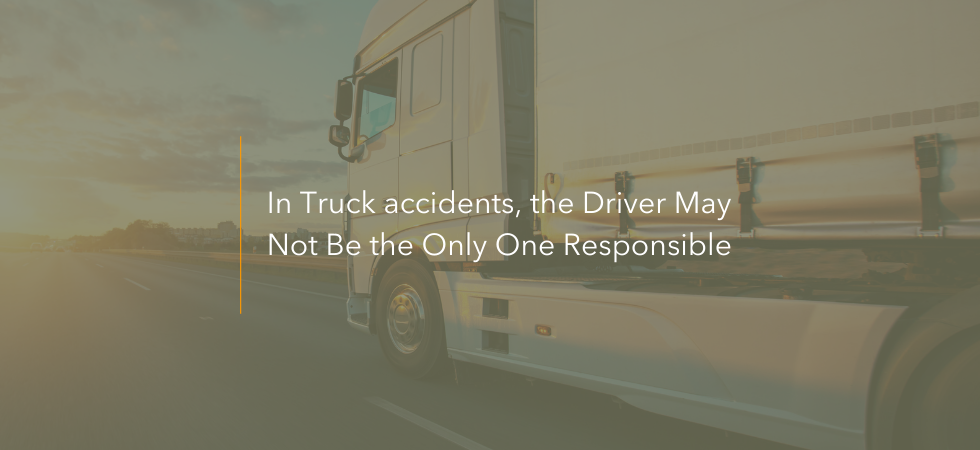There are many ways a commercial truck accident differs from crashes that only involve two passenger vehicles. The size of commercial trucks, the amount of damage they can cause, and the way a personal injury claim gets handled all differ vastly from car accidents, which is why truck accident litigation is a field unto itself.
If you are considering filing a personal injury claim after an accident with a commercial truck, one of the most important things to understand is that multiple third parties can be held liable for damages. In other words, the truck driver may have been behind the wheel at the time of the crash, but the accident may not have been entirely their fault.
That’s because multiple parties are responsible for ensuring a truck loaded with supplies makes it safely from one point to the next. A quick look at some of those parties helps illustrate how these different groups are responsible and why they could be held liable for negligence in the event of a collision or accident.
The trucking company that hires the trucker is frequently a responsible party in an accident. For example, an investigation into an accident may uncover that the parent company did not properly maintain and inspect the vehicle before the trip. A trucking company may also cut corners around safety issues or push a driver harder than necessary to meet a shipment deadline. Any of these things can contribute to an accident and should be examined by an experienced attorney as potential negligence.
Companies that manufacture truck equipment may also share in the blame if faulty parts are found. Common examples here include tire blowouts, defective and/or faulty brakes, and mechanical failures. If any of these conditions are found after an accident occurs, manufacturers may be on the hook to pay the accident victim’s damages.
Cargo loaders — that is, the company and personnel actually loading the truck — are responsible for making sure a load is secured and properly balanced. An improperly packed cargo load could affect handling of the truck, or could spill onto the road or around the semitrailer, potentially causing great danger to both the truck driver and others on the road.
In most cases the truck driver may be one of the responsible parties in an accident. Drivers that break speed or traffic laws, or that work under the influence of drugs or alcohol, pose a danger to everyone on the road. The same goes for drivers that are extremely fatigued from working past their designated Hours of Service regulations. Any of these violations could cause an accident with another vehicle, and would likely make the truck driver liable in a case.
If you plan to make a claim against any or all of the above parties, be forewarned that truck accident litigation involves very nuanced and specific federal and state laws. You must be able to prove that negligence on the part of one of these parties was a contributing cause of the crash. And you will be going up against companies that are armed with vast resources, including defense attorneys, that will do everything in their power to prevent you from getting the compensation you deserve.
The average driver on the road will in all likelihood be unfamiliar with the complex process, rules, policies, and legal issues involved in filing a truck accident claim. Your best decision is to find an experienced truck accident attorney willing to fight for and protect you and your family’s interests throughout the process.

